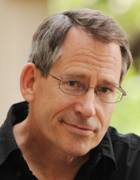John Preskill (Caltech)
UNE SÉRIE DE CONFÉRENCES / A SERIES OF LECTURES
Mercredi 26 octobre 2011, 16h00 / Wednesday, October 26, 2011, 4:00 pm
Centre de recherches mathématiques
Pavillon André-Aisenstadt, Universite de Montreal
Salle / Room 1360
Conférence s'adressant à un large auditoire / Suitable for a general audience
Putting weirdness to work: quantum information science
Quantum information (information encoded in a quantum system) has weird properties that contrast sharply with the familiar properties of classical information. Physicists, who have relished this weirdness for many years, have recently begun to recognize that we can put the weirdness to work --- there are tasks involving the transmission and processing of information that are achievable in principle because Nature is quantum mechanical, but that would be impossible in a less weird classical world. The security of cryptographic protocols that use quantum information instead of classical bits can be founded on principles of fundamental physics rather than assumptions about the resources available to a potential adversary. A quantum computer, which processes quantum information, could easily perform certain types of calculations that would take far longer than the age of the universe on today's supercomputers. However, constructing practical quantum computers will be tremendously challenging.
Une réception suivra la conférence au Salon Maurice-L'Abbé, Pavillon André-Aisenstadt (Salle 6245).
A reception will follow at the Salon Maurice-L'Abbé, Pavillon André-Aisenstadt (Room 6245).
COLLOQUES À L'UNIVERSITÉ MCGILL ET À L'UNIVERSITÉ DE SHERBROOKE
COLLOQUIA AT MCGILL UNIVERSITY AND UNIVERSITÉ DE SHERBROOKE
Vendredi 28 octobre 2011, 15h30 / Friday, October 28, 2011, 3:30 pm
Ernest Rutherford Physics Building
Université McGill
Auditorium Keys (Salle 112) / Keys Auditorium (Room 112)
Mercredi 2 novembre 2011, 10h45 / Wednesday, November 2, 2011, 10:45 am
Faculté des Sciences, Universite de Sherbrooke
Salle / Room D1-2165
Battling decoherence: the fault-tolerant quantum computer
Large-scale quantum computers, if and when we succeed in building them, will be able to solve problems that are beyond the reach of ordinary digital computers. But constructing practical quantum computers will be tremendously challenging. A particularly daunting difficulty is that quantum computers are far more susceptible to making errors than conventional digital computers. I will explain the principles of quantum error correction and fault-tolerant quantum computation, which can enable a properly designed quantum computer with imperfect components to achieve good reliability, and I will discuss the status of current research on this topic.
CONFÉRENCE DANS LE CADRE DE L'ATELIER: Information quantique: codes, géometrie et structures aléatoires
LECTURE AT THE WORKSHOP: Quantum Information: Codes, Geometry and Random Structures
Lundi 24 octobre 2011, 16h00 / Monday, October 24, 2011, 4:00 pm
Centre de recherches mathématiques
Pavillon Andre-Aisenstadt, Université de Montréal
Salle / Room 6214
Protected gates for superconducting qubits
I explain how continuous-variable quantum error-correcting codes can be invoked to protect quantum gates in superconducting circuits against thermal and Hamiltonian noise. The gates are executed by turning on and off a tunable Josephson coupling between an LC oscillator and a qubit or pair of quits; assuming perfect qubits, we show that the gate errors are exponentially small when the oscillator's impedance is large in natural units. The protected gates are not computationally universal by themselves, but a scheme for universal fault-tolerant quantum computation can be constructed by combining them with unprotected noisy operations.
John Preskill
